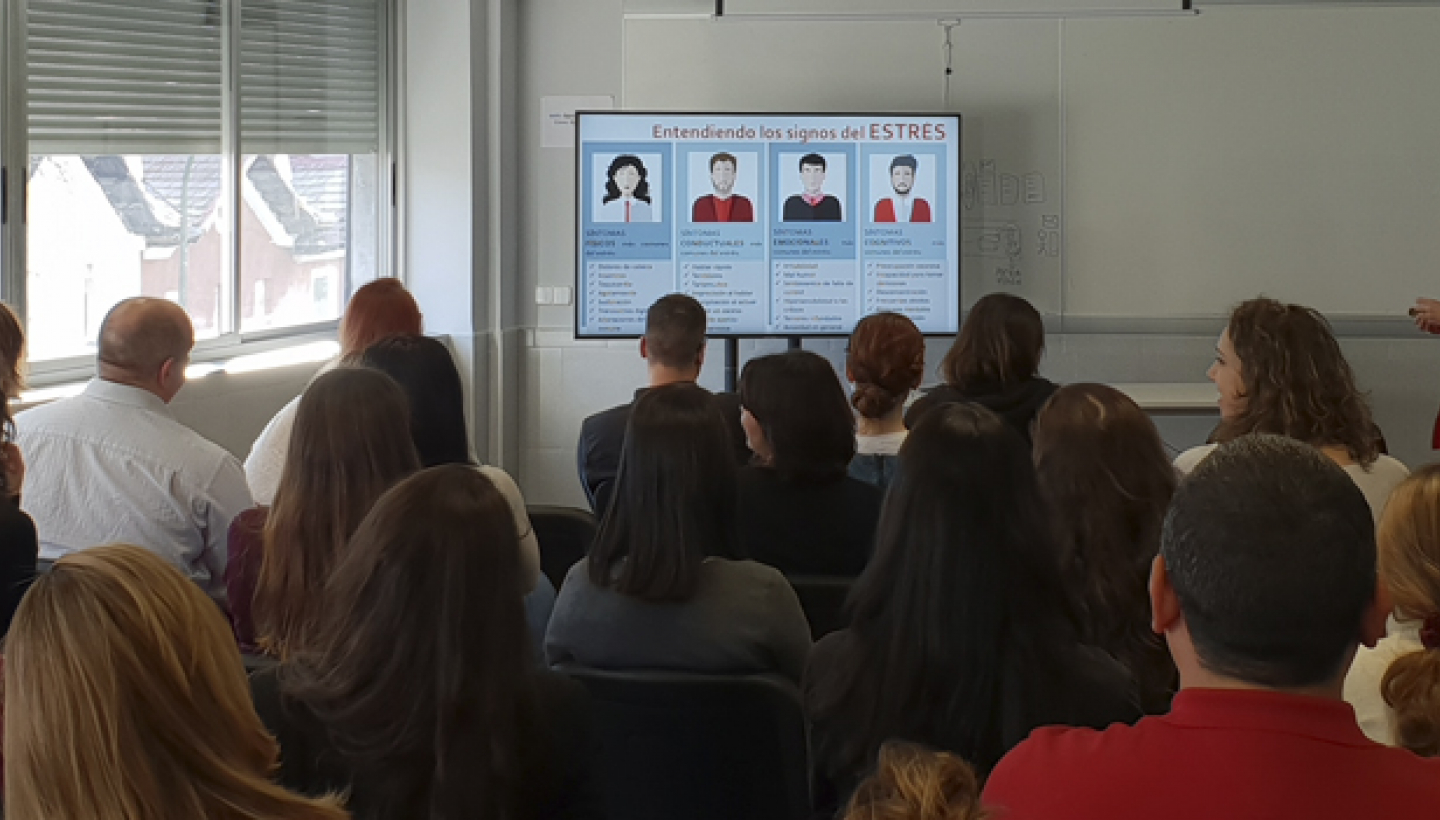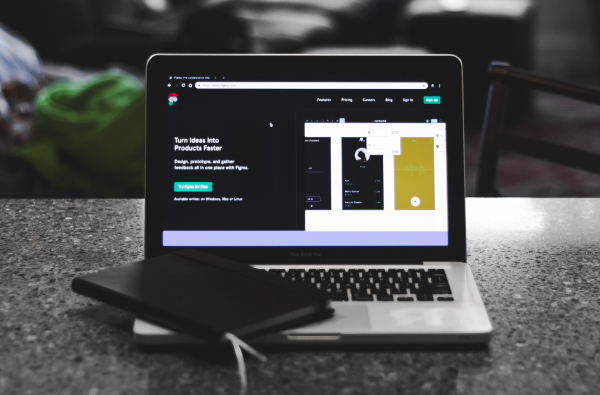Our team organised a seminar about stress management with the psychologist and emotional health expert Ofelia Cendón.
We discussed what generates stress and how we can take action to minimise potential triggers.
Ofelia Cendón is a positive psychology expert, a branch of psychology that focuses on emotional health, the factors that contribute to happiness, and how to achieve a sense of fulfilment.
To understand how to manage it effectively, our guest started the presentation with an explanation of what stress is. Originally, stress acted as a protective mechanism that increases our awareness, makes us more poised and able to respond better to whatever obstacles we have to overcome. Long-lasting exposure to stress, however, can lead to health issues like cardiovascular diseases, anxiety and depression.
If we want to increase work productivity and improve wellbeing, the first thing we have to do is create a plan to minimise the effects of stress. Some of the things that we can do include:
1.Communication and teamwork
Effective communication with team members helps to clarify what is expected of us at work. Setting clear targets is one of the easiest ways to proactively manage stressful situations and complete projects on time.
2.Time management
Time management is one of the most important aspects of productivity. It will help us find ways to work more efficiently and maximise our use of time. A variety of tools for task prioritisation, list making and task scheduling are available online and can be used to increase productivity. Scheduling tasks, tracking execution and using what is learned from experience to improve the implementation of future projects are the three most important phases of time management.

3.Setting boundaries
Creating a set of rules that we will stick to no matter the circumstances will help us in building a stress-free life. Things like avoiding to check work emails during the evening and setting boundaries between career and personal life can avoid stressful situations.
4.Taking time off
Finding ways to disconnect from our everyday schedule through meditation and sport will help us recharge and release the negative effects of stress. We’ll come back invigorated and ready to perform at our best. If it’s not possible to take time off, we were advised to disconnect from our mobile phones and switch attention from work-related activities for a while.
5.Staying connected to friends and family
Discussing our worries and concerns with colleagues will help us find solutions and the support we need to complete assignments. We can also engage in projects that serve the community. It will give us the satisfaction that we’ve made a contribution and will help us disconnect from work.
In conclusion, we can improve work productivity through rigorous planning, effective communication with colleagues and setting clear boundaries between work and personal life. Sport, meditation and disconnecting from work will help us perform better.



